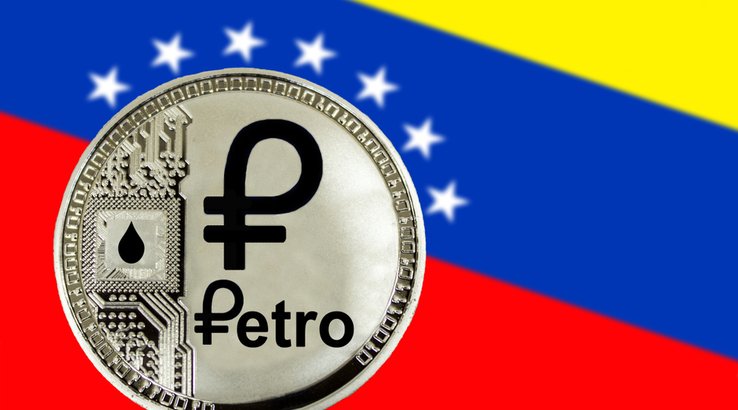Venezuela's oil-backed Petro Dollar cryptocurrency, or El Petro as it's locally known, has officially entered the pre-sale stage. And appropriately enough for a cryptocurrency, it's being largely held up in state media as a method of dodging the "illegal sanctions" imposed by the USA.
"El Petro was created by the Venezuelan Government to combat the financial blockade imposed by the United States (US), attract investments and generate a new payment mechanism for goods and services," says the partly government-funded Telesur news site.
"The Venezuelan cryptocurrency will be redeemable for fiduciary money and other crypto-assets through digital exchange houses. Its price will be associated with that of the Venezuelan crude oil basket because the State will accept the payment of taxes, obligations, contributions and national public services in Petro."
"The Petro stands as a novel initiative of the Bolivarian Government, led by President Nicolás Maduro, a liberating mechanism inspired by the genius of Commander Hugo Chávez," said vice president Tareck El Aissami in a speech accompanying the Petro's presale launch.
In a press conference on 15 February, shortly before the Petro's launch, Venezuela president Maduro also spoke extensively about the embargo.
He stressed that the recent visit of Colombian president Juan Manuel Santos to the Venezuelan border was "directly related to the visits of [US] Secretary of State, Rex Tillerson" and that the Colombian president agreed that Venezuelan foreign policy "is subordinated to the US" and that "Colombia puts its land in foreign service".
The Petro is the first official national government-backed cryptocurrency, and there's something very appropriate about it being viewed as a means of escaping political influence and ducking international regulation.
On the contrary
The official stance might be that El Petro is designed to save Venezuela from US sanctions, but Maduro's opponents are much less optimistic.
"This is not a cryptocurrency, this is a forward sale of Venezuelan oil," said legislator Jorge Millan. "It is tailor-made for corruption."
"Legislators warned investors that the Petro would be seen as null and void once Maduro, who is up for re-election this year, is no longer in office. They added that the petro issue violates constitutional requirements that the legislature approve borrowing," while "the ruling Socialist Party’s historic lack of respect for private property rights, will likely leave investors uninterested in acquiring petros," speculated Reuters.
OPINION: It's worth noting that this latter point is irrelevant and that Reuters staff writers might not be too familiar with the underlying technology. The innate trustlessness of systems like the Ethereum blockchain, on which El Petro will be run, means it's not actually possible for the government to ever confiscate the token. Meanwhile, the relative transparency of the system means it might actually be ideal for a country that's lost faith in its dollar.
In many ways, a national cryptocurrency is exactly what Venezuela needs right now, even though there are a lot of question marks around its actual oil backing, how widely used it will be and the likely extent of the almost inevitable corruption that will accompany its launch. To say nothing of the problems with hyping up one's new national currency as a speculative asset.
It may also be a wasted opportunity. There are almost certainly better economic designs than a highly speculative directly oil-tied token. For example, a token system that has the oil reserves as pooled collateral and then issues a stable digital currency based on that. Or almost anything else.
But it could also be a lot worse. If Venezuela really wanted a made-for-corruption cryptocurrency they would have just forked Monero and slapped a flag on it rather than going ERC20.
Quite informative post thanks for posting will research on this!!